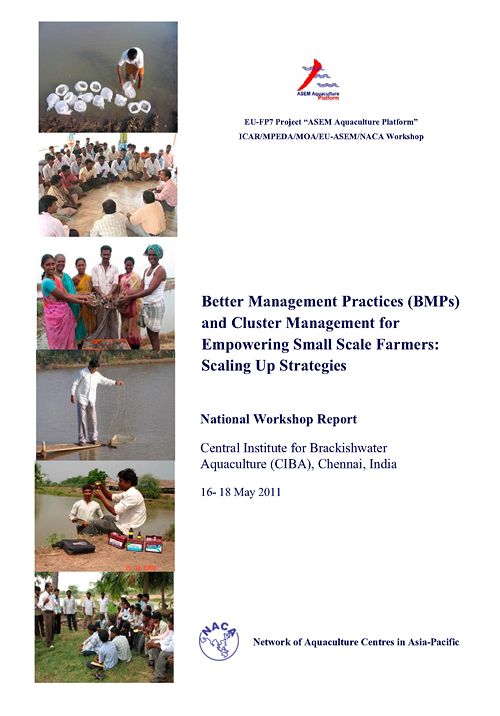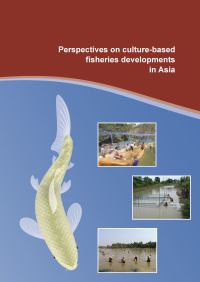Better management practices (BMPs) and cluster management for empowering small scale farmers: Scaling up strategies
29 June 2011 | 4033 Downloads | .pdf | 6.27 MB | Better management practices, India, Livelihoods, gender and social issues, Education and Training
The workshop was held in Chennai, India from 16-18 May 2011, at the Central Institute for Brackishwater Aquaculture. It was convened as an activity of the ASEM Aquaculture Platform, funded by the European Commission’s 7th Framework Programme.
The main purpose of the national workshop was to develop practical scaling up strategies at the national level and build consensus for an implementation plan for wider adoption of shrimp BMPs through a cluster management approach. The specific objectives of the workshop were to:
- Bring together key national institutions and stakeholders perform a thorough assessment of the impact of shrimp BMP and cluster management programs in India, including technical, social, economic, environmental and institutional concerns.
- Identify factors for success and constraints to adoption.
- Identify opportunities and challenges for scaling up.
- Provide projections on the impact of scaling up at the national level.
- Develop scaling up strategies for implementation by national institutions, regional organisations and potential donors.
Additional objectives included:
- Build awareness and capacity of relevant national stakeholders on BMPs, Cluster Management, Standards and Certification, cluster/group certification, Internal Control system (ICS), market access, etc.
- Share lessons from BMP and cluster management projects in India, Vietnam, Thailand and Indonesia.
- Strengthen the networking of shrimp BMP project implementers in the region.
- Learn from other sectors like agriculture, the dairy industry and links to other sectors such as the information and communications (ICT) sector.
Copyright, all rights reserved.

